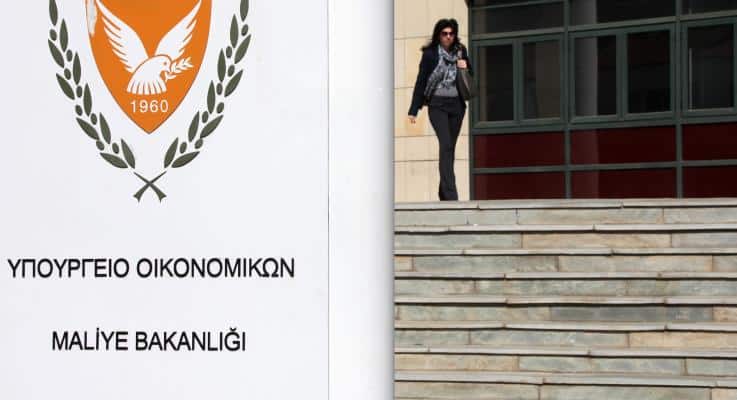EU also urged Cyprus to manage rising public spending
The Finance Ministry on Thursday expressed satisfaction with the findings of the European Commission included in the 2025 Spring Package for Cyprus.
In a statement, the ministry said that the report “clearly confirms the steady progress, resilience, and dynamism of the Cypriot economy“.
Moreover, the ministry underlined that these findings are particularly noteworthy given the current climate of international uncertainty and geopolitical unrest, as noted by the commission itself.
At the same time, the ministry reaffirmed its “commitment to the government’s economic policy, which it said aims to accelerate reforms and build a modern, competitive, and resilient economy that creates opportunities and prospects for all citizens”.
The European Commission presented the Spring Package on Wednesday, as part of the 2025 European Semester process.
“We welcome the fact that Cyprus’ efforts to reduce macroeconomic imbalances have been recognised, as the commission, in its assessment, removes Cyprus from the category of countries with ‘macroeconomic imbalances’ and includes it among those with ‘zero imbalances’,” the ministry said.
It added that “imbalances related to external and private debt have declined,” with the Commission noting that “the Republic of Cyprus has taken sufficient measures.”
The commission also reported that public debt continues to fall, supported by sustained fiscal surpluses.
Despite global economic fragility, Cyprus maintains strong growth, while efforts to diversify the economy are showing tangible results, the Ministry stated.
The announcement also highlighted Cyprus’ progress across most United Nations sustainable development indicators.
At the same time, the Commission cautioned that public spending in 2025 may exceed the agreed limit, based on current projections.
“The Finance Ministry, remaining committed to the policy of fiscal discipline and taking into account the Commission’s references to the rate of increase in public spending, will continue and intensify efforts to rationalise public expenditure,” the Ministry said.
It reiterated its determination to continue pursuing the government’s reform strategy, aimed at building an economy that is inclusive, competitive, and future-ready.
According to the commission’s broader analysis, Cyprus has made robust progress in strengthening its macroeconomic stability.
However, Brussels also outlined a series of longer-term challenges, particularly in areas such as innovation, environmental sustainability, education, and care for the ageing population.
Research and development spending remains one of the lowest in the EU, with weak links between academia, business, and government, and limited commercialisation of research results.
Energy remains a pressing concern, with high household electricity costs, heavy dependence on fossil fuels, and limited progress in green transition.
Water reuse, recycling, and waste management also require improvement, with Cyprus having the highest per capita food waste in the EU and one of the lowest recycling rates.
The commission also highlighted difficulties in the labour market, including low participation in STEM education and falling basic skills among young people since 2018.
Spending on long-term care for the elderly remains the lowest in the bloc, and access to such services is limited.
To address these issues, the commission issued five key recommendations for 2025–2026, urging Cyprus to increase defence spending within EU fiscal rules, accelerate its Recovery and Resilience Plan, and improve access to finance and business regulation.
It also called for greater investment in innovation and education, and for faster implementation of climate and infrastructure reforms.
The commission concluded that Cyprus stands to benefit significantly from EU funds if it intensifies reform efforts and accelerates the absorption of available resources by the end of 2026.






Click here to change your cookie preferences